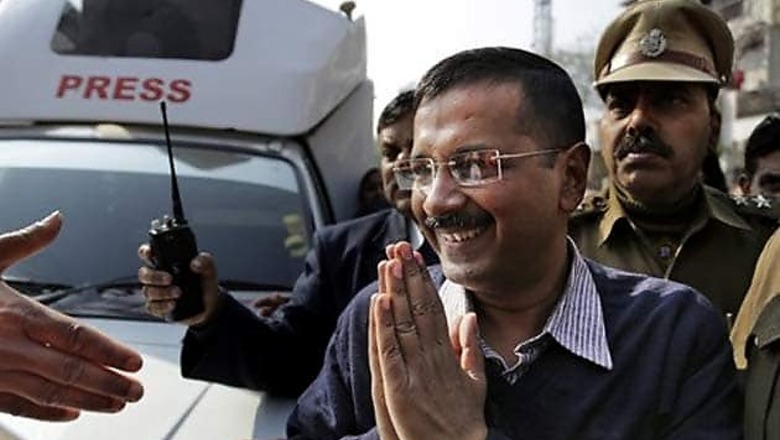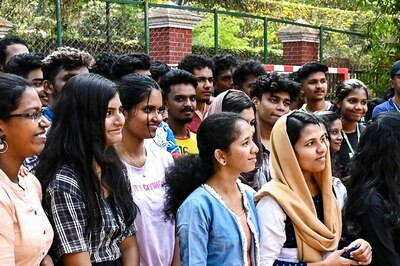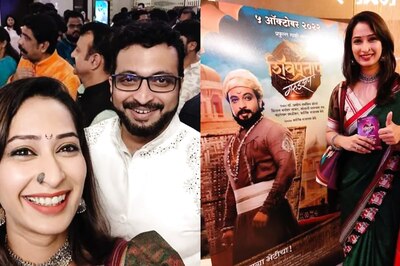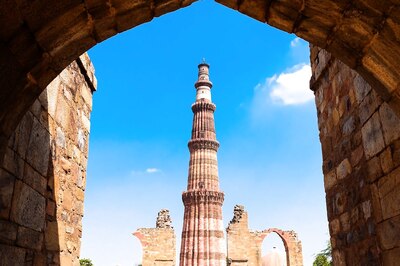
views
New Delhi: In 2012, he launched the Aam Aadmi Party and just a year later defeated three-time Chief Minister Sheila Dikshit in the 2013 Delhi Legislative Assembly election. Two years down the line, AAP chief Arvind Kejriwal has led his party to a massive majority in the national capital with his cash-strapped party winning almost 90% of the seats.
On February 10 Kejriwal punctured the Bharatiya Janata Party's victory march which began with the super show in Lok Sabha polls followed by big wins in various state assembly elections thereafter. However, the AAP stood like a solid rock, shaking up the entire political arena of the national capital, dismantling the two national parties - BJP and Congress.
His entry into politics was thunderous too with the party surprising everyone by putting up a stellar performance in the first election it fought. He assumed office as the Chief Minister of Delhi in 2013 after his party bagged 28 seats and the Congress decided to support him.
However, what looked as a rookie mistake, he resigned 49 days later after failing to table the Jan Lokpal Bill in the Delhi Assembly. His tenure was marked by several protests and strikes which drew severe criticism.
Kejriwal, aged 45, is a graduate of the Indian Institute of Technology Kharagpur and worked for the Indian Revenue Service (IRS) as a Joint Commissioner in the Income Tax Department. He is widely known for his efforts to enact and implement the Right to Information Act (RTI) at the grassroots level and his role in drafting a proposed Jan Lokpal Bill.
In 2006, he was awarded the Ramon Magsaysay Award for Emergent Leadership recognising his involvement in a grassroots movement. The same year, after resigning from the IRS, he donated his Magsaysay award money as a corpus fund to found the Public Cause Research Foundation, a non-governmental organization (NGO).
Kejriwal was the civil society representative member of the committee constituted by the Government of India to draft a Jan Lokpal bill, following a campaign for introduction of such legislation that featured Anna Hazare.
In the 2013 Delhi Legislative Assembly elections, the BJP won 31 seats, followed by AAP with 28 seats. Kejriwal defeated incumbent Dikshit of the Congress in her constituency of New Delhi by a margin of 25,864 votes.
AAP formed a minority government in the hung assembly, claiming support for the action gauged from opinion polls with outside support from the Congress, Janata Dal and an Independent. Kejriwal was sworn in as the second-youngest chief minister of Delhi on 28 December 2013.




















Comments
0 comment